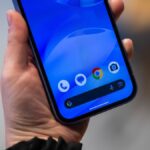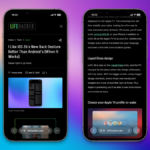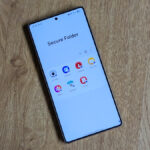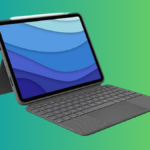Revelations from a Secure Messaging Misstep
Yet again, a security lapse makes headlines, this time unfolding within the confines of a group chat. On a recent Monday, Jeffrey Goldberg, the editor-in-chief of The Atlantic, revealed his inclusion in a Signal group conversation featuring officials from the Trump administration. This list included key members such as Defense Secretary Pete Hegseth, Vice President JD Vance, Secretary of State Marco Rubio, and National Security Advisor Michael Waltz, all discussing sensitive “operational details” regarding upcoming actions in Yemen.
While Signal is renowned for its secure messaging capabilities, it’s important to note that using such a publicly accessible platform for military coordination is not advisable. In fact, the U.S. government prohibits its use for classified communications. Here’s what makes Signal beneficial and the boundaries of its privacy features.
Optimal Uses for Signal
Signal stands out as a free, open-source messaging application equipped with end-to-end encryption, ensuring that user exchanges—be they text messages, images, audio, video, or calls—remain confidential and secure. It frequently ranks as one of the top choices for secure communications, with its privacy features and open-source design receiving praise from the Electronic Frontier Foundation and numerous cybersecurity specialists.
Beyond mere encryption, Signal offers functionalities such as disappearing messages that erase chats after a designated time, photo blurring, automatically concealing your phone number, and various additional security options designed to safeguard users’ identities and data.
These attributes position Signal as an exceptional platform for private exchanges, whether for personal affairs, sensitive documentation, or activism. If you’re an iPhone enthusiast, it is possible to set Signal as your primary messaging application. (Previously, Signal supported SMS/MMS for Android, allowing it to function as a default messaging app, but this feature was eliminated in 2022.) However, several considerations should be acknowledged.
Understanding the Privacy Risks with Signal
While Signal excels in providing encrypted communication, it does not offer complete privacy protections for highly sensitive information, particularly concerning national security.
As recent incidents illustrate, individuals can be mistakenly or deliberately added to group chats, creating a risk that confidential messages might be viewed by unauthorized parties. It is advisable to authenticate the identities of all participants in your conversations before sharing sensitive information and to make use of Signal’s group chat features to manage member approvals or limit who can invite others.
If sensitive details are exchanged, it’s prudent to verify the safety number of contacts to confirm their identities.
Nevertheless, even if all security measures on Signal are fully employed, the device in use may still be vulnerable to malware, as flagged by Apple in over 150 nations. These operations focus on surreptitiously installing harmful software on devices to monitor user activity and location—nullifying any encryption advantages that Signal may provide. High-profile individuals such as politicians, activists, and journalists are often primary targets of these intrusions.
Moreover, Signal can be accessed on various devices, including desktop applications, where data might not be as securely stored and could fall prey to vulnerabilities.
It is also essential to recognize the risk of physical theft of devices, putting sensitive data in the hands of anyone who gains access (thus highlighting the necessity for disappearing messages).
With these considerations in mind, while utilizing Signal is an important initial step, it should complement a broader range of privacy practices. iPhone users might consider pursuing a few extra precautions to enhance their data security—perhaps even public officials could benefit from adhering to such guidelines.












